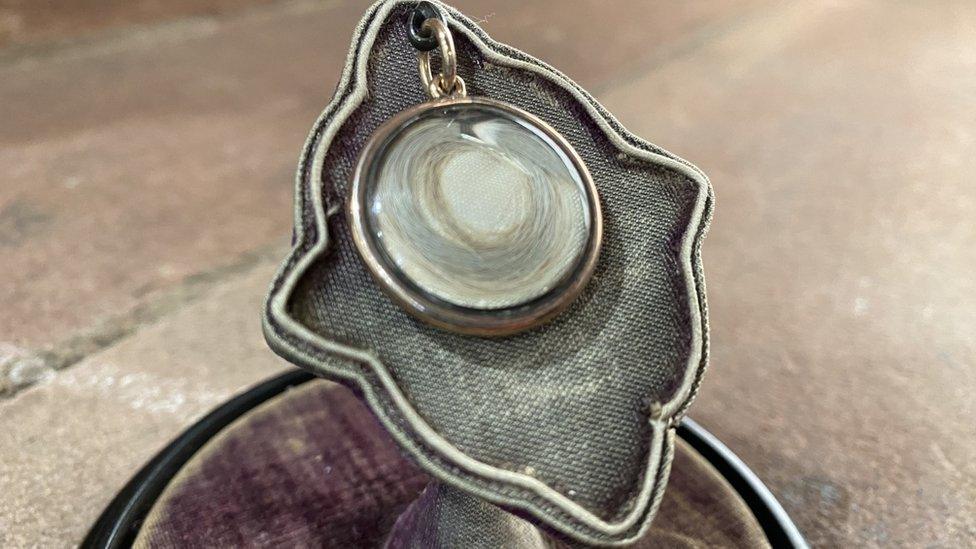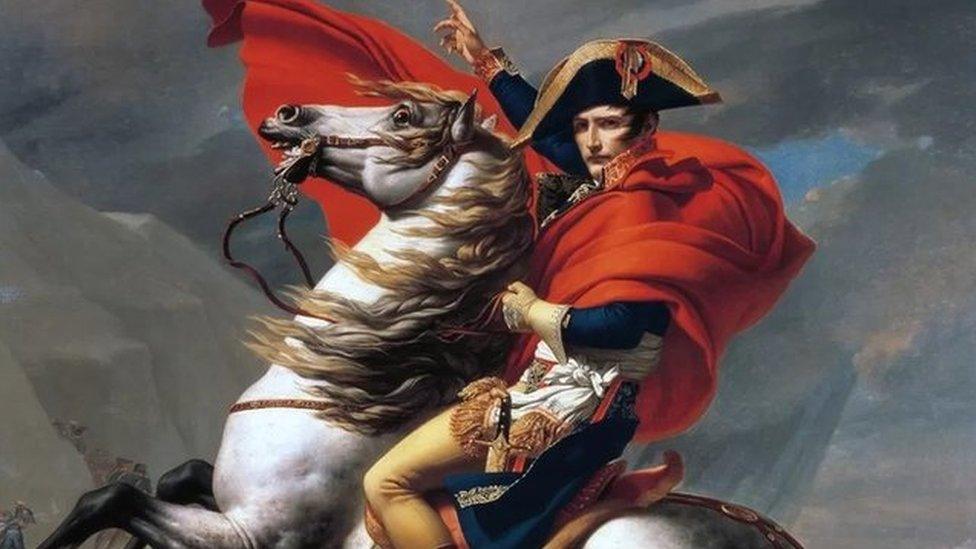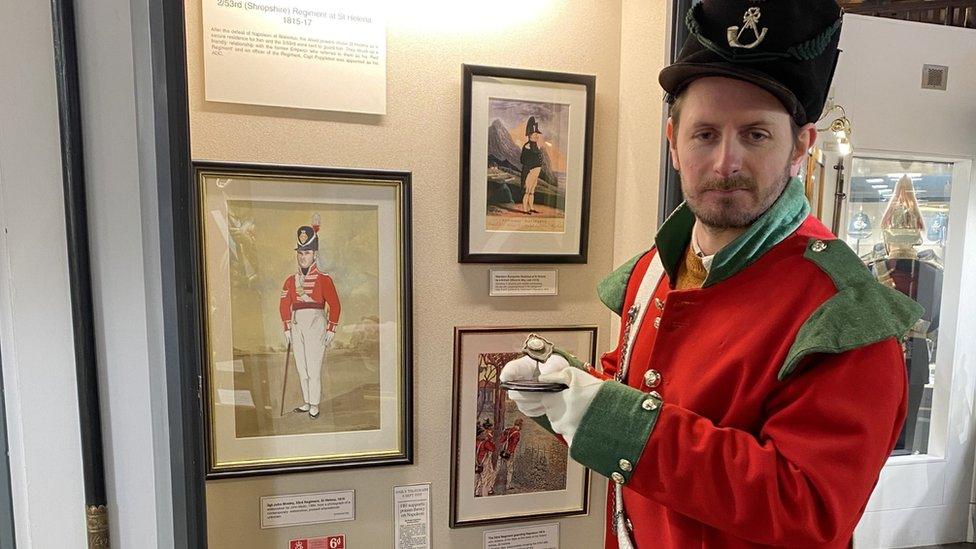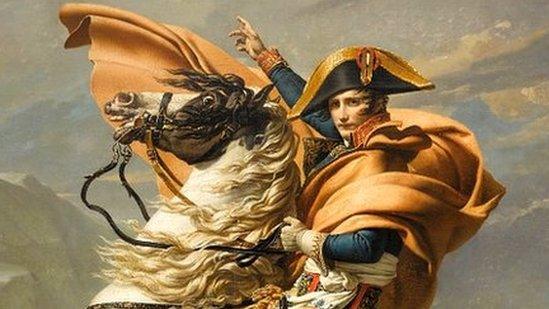Napoleon's hair kept at Shrewsbury Castle
- Published

The hair was kept in Galway for years until it came to Shropshire
As the exploits of Napoleon once again come under the spotlight with the release of a new biopic, Shrewsbury Castle is reminding visitors it can bring them even closer to one of history's most famous military commanders.
It has a lock of the Frenchman's hair.
Before that, the keepsake was the property of Captain Thomas Poppleton, of the Shropshire 53rd Regiment.
Napoleon Bonaparte gave it to him after being captured by the British in 1817.
It was then kept in Galway where Poppleton lived and was later bought by a friend of Shropshire Museums, of which the castle's museum, Soldiers of Shropshire, forms part.
"Hair was meant to maintain a bond between people separated by distance or death," said Dr Rob McKinnon from the venue.
"Locks of hair certainly in the 1800 and 1900s were quite a common form of showing affection to people and sort of a sense of commitment to maintaining a relationship."
The British imprisoned Napoleon on the remote Atlantic island of St Helena after the Battle of Waterloo.
Despite Poppleton and other soldiers in the regiment being his captors, Napoleon became fond of the men, Dr McKinnon said.
He even referred to them as "my redcoats".
Poppleton died in Galway in the 1820s at the age of 52.

Jacques-Louis David's painting of Napoleon Crossing the Alps
Napoleon was known to use the chaos of the French revolution to rise through the ranks of the army and seize political power in France.
Last month saw the release of Sir Ridley Scott's film Napoleon, starring Joaquin Phoenix as the commander, and Vanessa Kirby as his wife and obsession Josephine.
The film is said to contrast the intimacy of the couple's relationship with the actions of a man whose lust for power brought about the deaths of an estimated three million soldiers and civilians.

Dr McKinnon said it was a privileged to have the item in Shrewsbury
The hair, which is encased in a silver brooch, remained within the Poppleton family until 2011 and for many years was on loan to the Soldiers of Shropshire museum, before it was bought for it at auction.
"For me it's about emotional bonds between people… I feel quite privileged sometimes to be able to look and to be able to care for these bonds of love," Dr McKinnon said.
"It is a significant object for us and I think it's a significant object for history as well."

Follow BBC West Midlands on Facebook, external, X, external and Instagram, external. Send your story ideas to: newsonline.westmidlands@bbc.co.uk, external
Related topics
- Published19 November 2023

- Published5 May 2021
